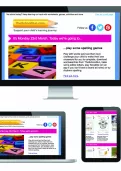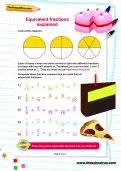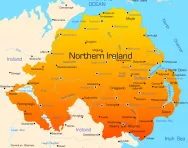Important update from TheSchoolRun
For the past 13 years, TheSchoolRun has been run by a small team of mums working from home, dedicated to providing quality educational resources to primary school parents. Unfortunately, rising supplier costs and falling revenue have made it impossible for us to continue operating, and we’ve had to make the difficult decision to close. The good news: We’ve arranged for another educational provider to take over many of our resources. These will be hosted on a new portal, where the content will be updated and expanded to support your child’s learning.
What this means for subscribers:
- Your subscription is still active, and for now, you can keep using the website as normal — just log in with your usual details to access all our articles and resources*.
- In a few months, all resources will move to the new portal. You’ll continue to have access there until your subscription ends. We’ll send you full details nearer the time.
- As a thank you for your support, we’ll also be sending you 16 primary school eBooks (worth £108.84) to download and keep.
A few changes to be aware of:
- The Learning Journey weekly email has ended, but your child’s plan will still be updated on your dashboard each Monday. Just log in to see the recommended worksheets.
- The 11+ weekly emails have now ended. We sent you all the remaining emails in the series at the end of March — please check your inbox (and spam folder) if you haven’t seen them. You can also follow the full programme here: 11+ Learning Journey.
If you have any questions, please contact us at [email protected]. Thank you for being part of our journey it’s been a privilege to support your family’s learning.
*If you need to reset your password, it will still work as usual. Please check your spam folder if the reset email doesn’t appear in your inbox.
An overview of the English education system

In England, children ages 5-16 must be in full-time education, but the education structure begins at age 3-4 with Nursery. Children will enter primary school at age 4-5, then secondary school at age 11-12. The age of a child on 1 September determines when they need to start school.


Start a unique learning programme!
- Weekly programme for each school year
- Worksheets sent direct to your inbox
- Keeps your child's learning on track
All maintained schools (most state schools) in England follow the National Curriculum, which lays out learning targets, essential and optional subjects, and an assessment strategy for school years 1-11. This includes four National Curriculum Tests (NCTs), which are more commonly known by their former name, SATs (Standard Attainment Tests).
The four divisions are called Key Stages – Key Stage 1 SATs may be administered at the end of Year 2, but these are optional, and Key Stage 2 SATs at the end of Year 6. Students in Key Stage 3 are not given a series of exams, but are continually assessed by their teachers throughout years 7-9. Key Stage 4 ends with students taking General Certificate of Secondary Education exams (GCSEs).
Students are not required to stay in school after completing Key Stage 4. However, young people must be in education or training until the age of 18. They may go on to sixth form (Years 12-13) if they choose to. They will be eligible to take A-levels during this time, as well as BTEC qualifications.
| Age during school year | England and Wales: National Curriculum (plus Foundation Phase in Wales) | Northern Ireland: Northern Ireland Curriculum | Scotland: Curriculum for Excellence |
| 4-5 | Reception | Year 1 | (Nursery) |
| 5-6 | Year 1 | Year 2 | P1 |
| 6-7 | Year 2 | Year 3 | P2 |
| 7-8 | Year 3 | Year 4 | P3 |
| 8-9 | Year 4 | Year 5 | P4 |
| 9-10 | Year 5 | Year 6 | P5 |
| 10-11 | Year 6 | Year 7 | P6 |
| 11-12 | Year 7 | Year 8 | P7 |
| 12-13 | Year 8 | Year 9 | S1 |
| 13-14 | Year 9 | Year 10 | S2 |
| 14-15 | Year 10 | Year 11 | S3 |
| 15-16 | Year 11 | Year 12 | S4 |
| A-Levels and SCE Highers – not compulsory | |||
| 16-17 | Year 12 | Year 13 | S5 |
| 17-18 | Year 13 | Year 14 | S6 |








